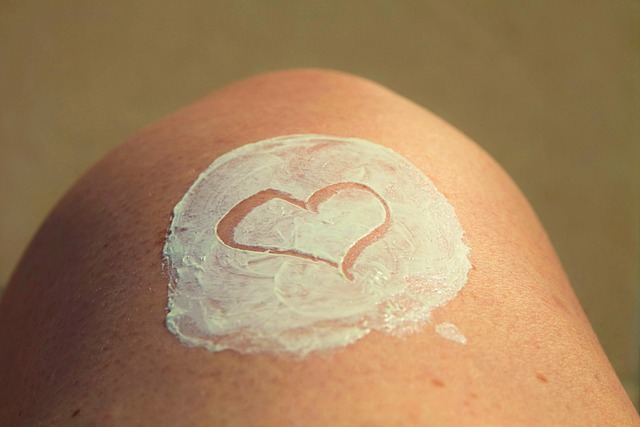The Most Surprising Skin Myths in the Beauty Business

The Most Surprising Skin Myths in the Beauty Business
The beauty business stands as a dynamic force that continually introduces new products, techniques, and ideals of skin perfection. From luxurious creams to cutting-edge treatments, their impact on skincare practices cannot be denied. With countless brands vying for attention, consumers often find themselves navigating a maze of information, struggling to discern the truth from the trendy.
However, within this vast sea of beauty information lie numerous myths that can lead even the most diligent skincare enthusiasts astray. These myths range from miraculous overnight solutions to universal ingredients that promise flawless skin. Unearthing the truth from these layers of misinformation is crucial. By addressing and debunking these myths, we aim to empower readers with the knowledge needed to make informed decisions about their skincare routines.
Common Skincare Myths
Myth 1: Higher SPF equals better protection
The Misconception
One prevalent myth in the world of skincare is the notion that a higher SPF (Sun Protection Factor) in sunscreen automatically translates to superior protection against the sun's harmful rays. This fallacy has led many individuals to believe that an SPF 50 sunscreen is inherently better than an SPF 30 product. However, this oversimplification obscures the nuances of effective sun protection.
Understanding SPF Ratings
It's essential to grasp the true significance of SPF ratings. While it's true that higher SPF values do offer more protection, the difference isn't as dramatic as it might seem. An SPF 30 sunscreen filters out around 97% of UVB rays, while an SPF 50 sunscreen blocks about 98%. The increase in protection is minimal, and no sunscreen can provide 100% shielding. Moreover, the duration of protection also depends on factors like sweat, water exposure, and reapplication.
Expert Advice
While at least SPF 30 is recommended, the emphasis should not solely be on the SPF number but on the proper usage of sunscreen. Applying an adequate amount (about a shot glass for the body) and reapplying every two hours, regardless of SPF, is crucial for effective protection. Additionally, broad-spectrum coverage, which guards against both UVA and UVB rays, should be a priority.
Myth 2: Oil-free products are the best choice for oily skin
The Popular Belief
The widely embraced myth suggests that individuals with oily skin should exclusively opt for oil-free skincare products. This notion stems from the assumption that adding more oil to already oily skin could exacerbate the issue, leading to breakouts and a greasy complexion.
Benefits and Drawbacks
While oil-free products have gained popularity, they are not a one-size-fits-all solution for oily skin. Oil-free formulations can certainly help mitigate excessive shine, but they might not always address the root causes of oiliness. Some oil-free products might strip the skin of natural oils, triggering an overproduction of sebum and further complicating matters. Additionally, the absence of oils can lead to inadequate moisture, potentially causing dry patches alongside oiliness.
Dermatologist Recommendations
Experts advise that a balanced approach is key for managing oily skin. Instead of avoiding all oils, individuals should seek non-comedogenic products with lightweight, natural oils like jojoba or argan oil, which can help regulate oil production and maintain the skin's barrier function.
Incorporating gentle cleansers, exfoliants with salicylic acid, and lightweight, oil-free moisturizers can create a well-rounded skincare routine. Regular cleansing, avoiding harsh products, and using sunscreen daily is essential for healthy skin.
Myth 3: Natural ingredients are always better for the skin
The Widespread Belief
A prevailing misconception asserts that natural skin care products are superior to their counterparts. This belief arises from the assumption that natural ingredients are gentler and more aligned with the body's needs, making them universally suitable for all skin types.
Understanding Individual Needs
While natural ingredients can offer benefits, the effectiveness of skincare hinges on a nuanced understanding of individual skin types and ingredient compatibility. What works wonderfully for one person may trigger adverse reactions in another. The diversity of skin sensitivities and concerns necessitates a more personalized approach to skincare.
Expert Insights
Dermatologists emphasize that the categorization of ingredients into natural and synthetic oversimplifies the complexity of skincare. Natural ingredients can be potent and beneficial, but so can well-formulated synthetic ones. The key is choosing products backed by research, free from irritants, and tailored to your needs. Furthermore, synthetic ingredients can offer advantages such as stability and precision in addressing unique skin concerns.
Conclusion
In the labyrinth of the beauty business, we've unraveled some of the most misleading skin myths. From the illusion of higher SPF superiority to the misconception around oil-free solutions and the allure of all things natural, our journey through these fallacies underscores the need for informed skincare decisions. Trusting your skin to evidence-based practices, rooted in individual needs and expert advice, is paramount. Remember, seeking guidance from professionals and reliable sources empowers you to navigate the realm of beauty with wisdom. By dispelling myths, you pave the way for a skincare routine that nurtures and revitalizes your skin's natural radiance.
Similar Article;
